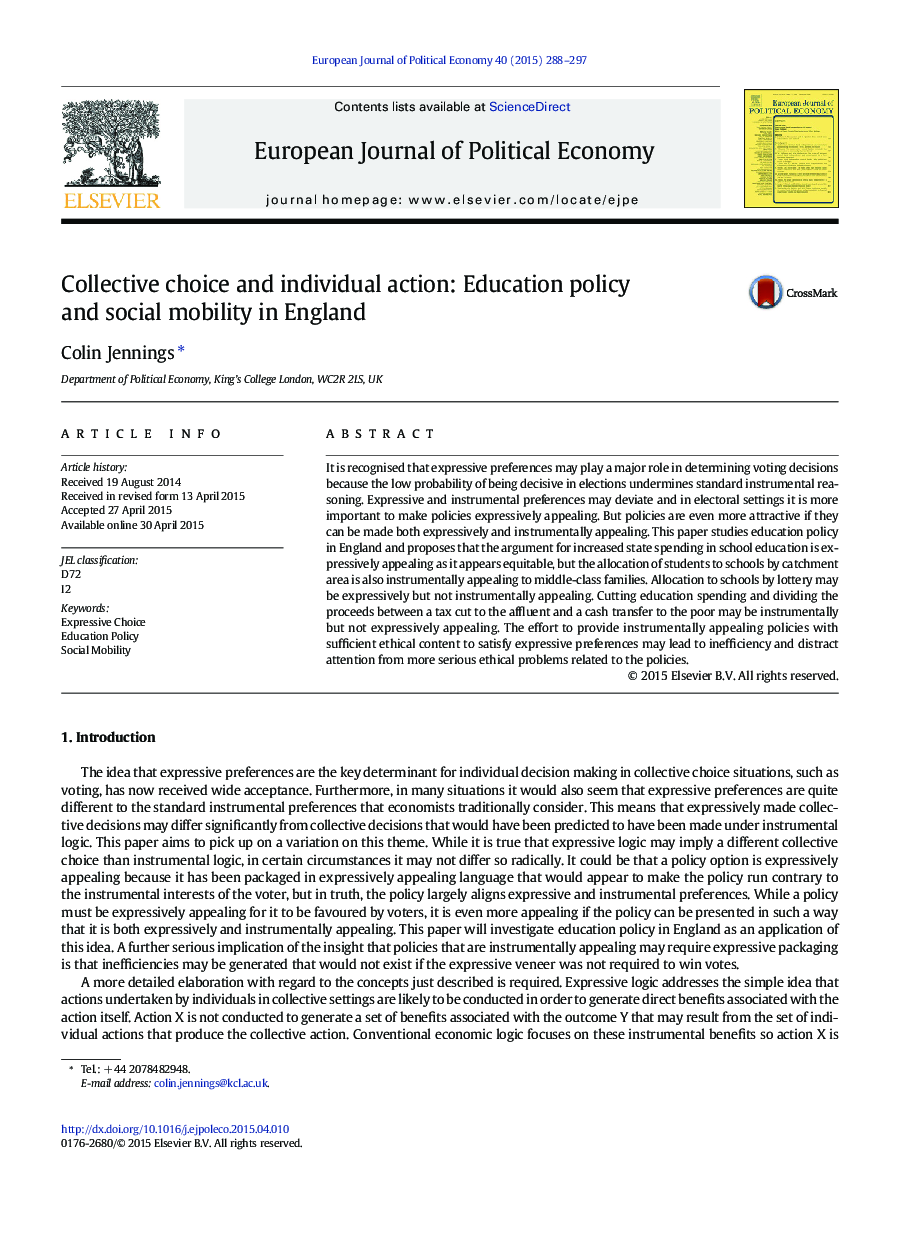| کد مقاله | کد نشریه | سال انتشار | مقاله انگلیسی | نسخه تمام متن |
|---|---|---|---|---|
| 5067894 | 1476885 | 2015 | 10 صفحه PDF | دانلود رایگان |
- Policies that are instrumentally and expressively appealing are politically popular
- But such policies are potentially inefficient and inequitable
- Generous state funding of education is expressively appealing
- Catchment areas are instrumentally appealing
- More efficient or equitable policies are not politically popular
It is recognised that expressive preferences may play a major role in determining voting decisions because the low probability of being decisive in elections undermines standard instrumental reasoning. Expressive and instrumental preferences may deviate and in electoral settings it is more important to make policies expressively appealing. But policies are even more attractive if they can be made both expressively and instrumentally appealing. This paper studies education policy in England and proposes that the argument for increased state spending in school education is expressively appealing as it appears equitable, but the allocation of students to schools by catchment area is also instrumentally appealing to middle-class families. Allocation to schools by lottery may be expressively but not instrumentally appealing. Cutting education spending and dividing the proceeds between a tax cut to the affluent and a cash transfer to the poor may be instrumentally but not expressively appealing. The effort to provide instrumentally appealing policies with sufficient ethical content to satisfy expressive preferences may lead to inefficiency and distract attention from more serious ethical problems related to the policies.
Journal: European Journal of Political Economy - Volume 40, Part B, December 2015, Pages 288-297
